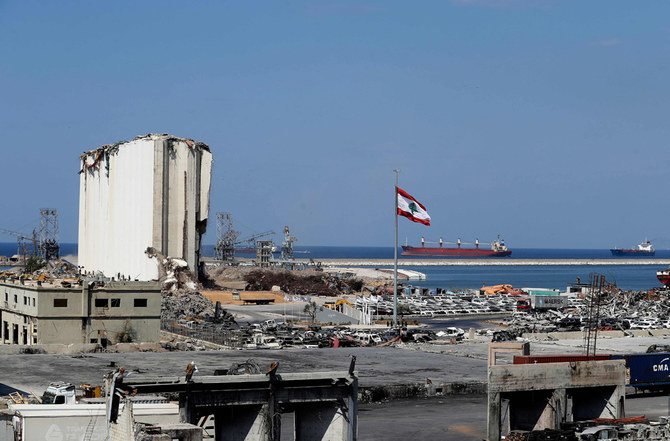BEIRUT: Lebanon is suffering through a dire financial crisis and while an interest-free injection of funds from the International Monetary Fund will help, many are concerned with how the state will appropriate the money.
The country’s finance ministry was informed by the IMF that Lebanon will receive approximately $1.1 billion in special drawing rights or SDRs, with $860 million marked for 2021 and $275 million for 2019. The money will be deposited into the accounts of Lebanon’s Central Bank (BDL).
The country is depending on this allocation to address the financial and economic crises that have ravaged Lebanon for the past two years. The money will also be used to activate the national cash card scheme, which will benefit 700,000 families in Lebanon amid the decision to completely lift subsidies on fuel. Funding the cash card will require $566 million annually.
SDRs are not controlled or conditioned and they are interest-free, financial expert Walid Abu Sleiman said. The funds are usually granted in a case of crisis as Sleiman said Lebanon was the recipient of these SDRs because of the coronavirus.
“The risky part is that the allocation will be handled by the state, represented by BDL, and the government could spend it in coordination with BDL, which means that these funds might be wasted,” Sleiman told Arab News.
He compared it to when Lebanon received a $225 million loan from EDL (Electricité du Liban) but the funds were spent in less than a month, which left the Lebanese with no access to electricity.
“The sum will be received by BDL, not the government,” Sleiman said. “It must be used in projects that bring revenues for the Lebanese people because this loan will be paid back from their money.”
Lebanon’s dollar reserves have almost dried up. BDL informed the ruling class in August that it was no longer capable of opening new credit lines to import or subsidize fuel.
The registration process for the cash card platform was supposed to kick off on Wednesday. However, Lebanon’s media outlets reported that “technical problems” might have hindered the launch of the platform and added that “funding for the card is not guaranteed to be provided from the IMF loan.”
It was an all-too-common response to yet another financial blunder in the cash-strapped country. On Wednesday, politicians warned against the possible misuse of IMF’s allocation.
“What is needed is a legal course for all the expenditures,” Hezbollah MP Hassan Fadlallah said. “It must also be subject to the government’s decisions in line with the controls defined by the laws in force.”
The new government, led by prime minister Najib Mikati, is still busy with the handover process from Hassan Diab’s government and forming a ministerial statement that the cabinet will announce on Thursday. Giving the new government a vote of confidence depends on this statement.
Meanwhile, the UN Office for the Coordination of Humanitarian Affairs said last week more than 80 percent of Lebanon’s population has slipped below the poverty line, a rate much higher than last year, which was estimated at 50 percent.
The Lebanese are struggling to make ends meet after the local currency lost more than 90 percent of its value on the black market.
Regarding the need for a legal course to use IMF’s loan, Sleiman said: “There is no need for a legal course for issues like stabilizing the dollar exchange rate and subsidies. The parliament has already approved the cash card and allowed the cabinet to borrow more than $560 million, meaning that the government can benefit from the IMF loan knowing that the funds will not be controlled.”
But if the funds were used to build a power generating plant, for example, a legal course would be required, Sleiman said.
Economic expert Elie Yashoui said that IMF allocation has nothing to do with government formation.
“It is the first test for Mikati’s government and therefore, the funds must be spent carefully with a clear plan,” he said.
“BDL should not consider that the allocation belongs to it. The allocation belongs to the Lebanese state, and the government must include it in the treasury and the budget of 2022. The sum should not be spent to finance the cash card or to import or subsidize any item.”
Lebanon’s Kataeb Party warned against “the possible misuse of the loan by the current political class through new projects or electoral aid distributed through suspected projects and cards under the pretext of aid.”
The party said the structure of Mikati’s government “is incapable of making any reforms that can pull Lebanon out of its crises, as long as it is controlled by the same ruling class and as long as its priority is not the Lebanese people. The road map that guarantees the restoration of institutions starts with negotiations with the IMF.”


































